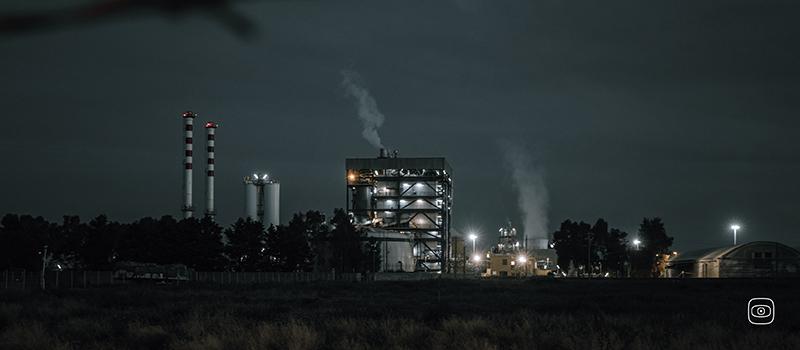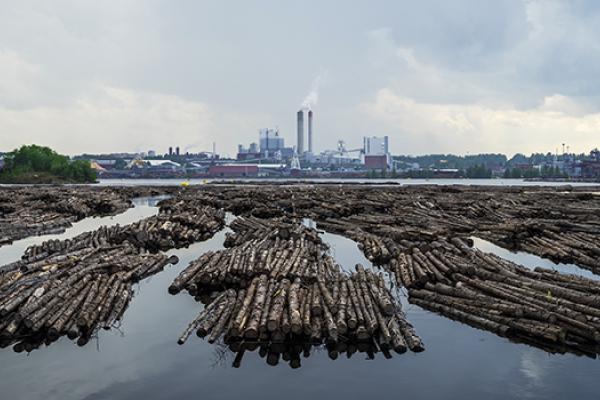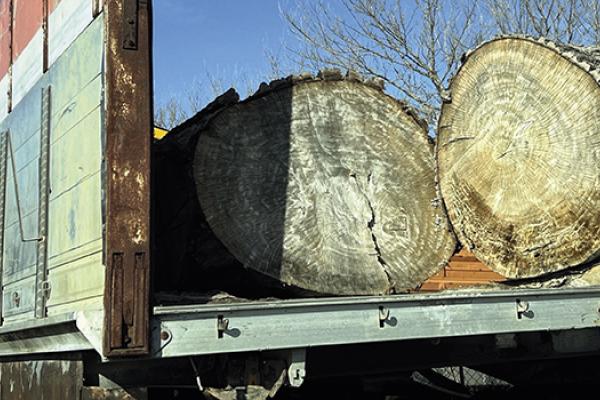What is behind EPH, one of Europe’s major biomass energy providers? Czech billionaire Daniel Křetínsky, owner of the multinational corporation Energetický a průmyslový holding (EPH), is known for his controversial investments in fossil fuel infrastructure and ambivalence towards the green transition. Though European researchers and advocacy groups accused the growing energy corporation of being a “fossil hyena” and setting the stage for “a carbon bomb in the heart of Europe”, his sphere of influence and net worth keep inflating.
EPH is the biggest energy group in Central Europe and one of the main emitters of greenhouse gases on the continent. As part of its biomass operations, it receives a portion of the billions paid out by the EU in renewable energy subsidies, even though it is also the biggest coal producer in Europe.
This months-long investigation by a cross-border team of journalists from five countries, in collaboration with Follow The Money, investigated major EPH operations in Italy, France, the United Kingdom, the Czech Republic, and Germany. After speaking with experts, researchers, activists, government officials, and prosecutors, we acquired documents and information through FOIA requests and OSINT searches, consulting public databases, financial reports, and specialized archives. We also collected samples to test the DNA/Isotope analysis to assess the origin of the wood burnt in EPH’s biomass plants.
The investigation unveils the flaws in the European woody biomass system through the operations of one of its biggest beneficiaries, showing how EPH has built a billion-euro business model that exploits the loopholes and ambiguities of energy transition policies, starting with a series of inconspicuous biomass facilities scattered throughout Europe.
Key findings:
- In the UK, EPH is soaking up government subsidies, more than genuinely renewable forms of energy. In 2024 alone, Lynemouth Power, the plant owned by EPH’s UK subsidiary, received £92 million (about €110 million) in Contract for Difference subsidies from the government. These calculations provide a rare insight into the hundreds of millions biomass plants receive in subsidies, since total subsidies across all of EPH’s European biomass operations are not publicly available.
- In Italy, EPH-owned biomass plants rely heavily on subsidies, with state incentives meant for producing energy from renewable sources generally averaging between 20 to 30% of the plants’ revenues. In 2022, while the Italian EPH subsidiaries of Strongoli, Crotone and Fusine were receiving public subsidies to the tune of tens of millions of euros, EPH extracted more than 62 million euros from these companies in the form of dividends, according to companies’ financial reports. By the end of 2022, when all of EPH’s subsidiaries paid their share of their profit to their shareholders, the parent company was able to pay no less than 1.5 billion euros to its owners. The next year it reached an all time high with 3.4 billion euros in dividends paid to its shareholders.
- In Czechia, despite its record profits during Covid pandemic and the subsidiary EP Commodities relocating abroad to avoid windfall tax, EPH is receiving a record number of state subsidies for its transition from coal to biomass burning. In the UK, the EPH plant has an incentive to stop producing energy when it can make more money that way (whether from selling wood pellets to other buyers or increasing the subsidy amount from the government). It sometimes goes entire months without producing energy. Though EPH declares to use mostly discarded wood, EPH burns healthy forests in some of its power plants.
- In France, it was found that EPH's French subsidiary sources about 30 percent from protected areas, such as Natura 2000 zones. The company told us that it intends to exclude Natura 2000 zones from its future supply plan. In the UK, wood sources include longleaf pine, a protected and culturally important species in the Southeastern US.
- In Italy, most of the wood that biomass plants use is listed as virgin wood, which is generally not waste wood.
- In Germany, contrary to LEAG's promise that mainly residual and waste wood will be used, we could see stacks of round wood on the plant site, which, according to a forestry scientist analysing our photo and drone material, could still have been used as material. EPH’s subsidiaries lack transparency about their wood supply sources. In some countries, obtaining official documentation on biomass quality and origins leads to a convoluted maze of rebuttals and dead ends.
- In the UK, Lynemouth Power claims to have biomass sustainability certification from two organizations, yet one of these confirmed that it does not actually certify the plant.
- In Italy, some authorities and public institutions have declared they did not have the requested documentation or that the matter was not their responsibility. A prosecutor reported issues in assigning legal responsibility in local mafia infiltration cases, whilst EPH Italian plants may rely on private certification bodies to which FOIA regulation does not apply.
Some EPH’s power plants were also found to emit notable levels of CO2 and other emitters. In Italy, air monitoring reports have indicated on-time exceedances for legal daily limits of PM10 and PM2.5 particulate matter, one of the most polluting and carcinogenic elements. In France, it has been found that EPH’s plant emits 16 times more than the national average. In Germany, the former lignite company could become one of the largest wood pellet manufacturers in Germany under LEAG Pellets GmbH. The Federal Cartel Office has approved the purchase of Wismar Pellets in 2023, contrary to major criticism by organizations.
Image by Alex Mazza.









